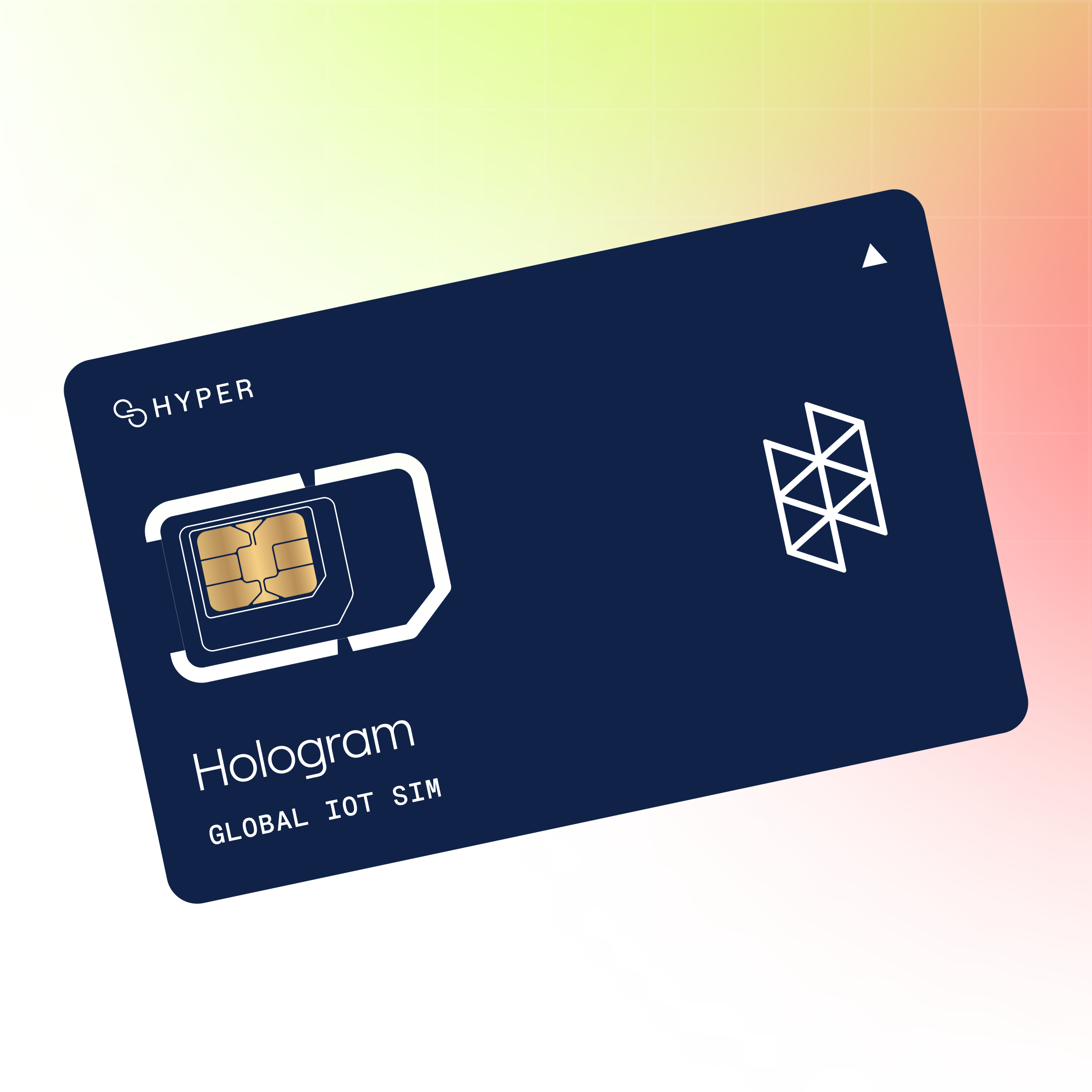Nb-Iot Sim Card The Ultimate Guide IoT SIM Cards
Nb-Iot Sim Card The Ultimate Guide IoT SIM Cards
Blog Article
4g Iot Sim Card Single-Core Global eUICC IoT SIM
The panorama of manufacturing is evolving quickly, driven primarily by technological developments. Among these developments, IoT connectivity solutions for manufacturing automation stand out as pivotal elements reshaping how industries function. The Internet of Things (IoT) integrates digital and physical worlds, creating a community of interconnected devices that communicate seamlessly. This interconnectedness permits producers to optimize their processes and enhance productiveness.
Real-time information is a cornerstone of modern manufacturing. Through IoT connectivity solutions, machines and sensors generate information that provide insights into manufacturing processes. This instant access to information empowers manufacturers to make knowledgeable decisions quickly. For instance, if a machine is underperforming, operators can determine the problem and implement corrective actions without delay, finally minimizing downtime and enhancing throughput.
Predictive maintenance is one other important benefit of IoT connectivity solutions. By constantly monitoring tools efficiency through numerous sensors, manufacturers can anticipate failures before they happen. This proactive method drastically reduces maintenance prices and improves the lifecycle of machinery. Instead of adhering to a reactive maintenance strategy, organizations can optimize their maintenance schedules based on precise machine circumstances.
Best Iot Sim Card IoT SIM Card Connectivity
IoT technology additionally facilitates higher supply chain management. With the integration of sensors throughout the availability chain, producers achieve enhanced visibility into inventory ranges and material flows. This improved visibility allows businesses to optimize stock administration, guaranteeing that they have the mandatory materials on hand with out overstocking. Such effectivity interprets to decreased costs and improved service levels, that are crucial for maintaining a competitive edge.
Automation and robotics are increasingly reliant on IoT connectivity solutions. Smart factories integrate automated systems powered by IoT to streamline manufacturing processes. Robotics geared up with IoT capabilities can talk with one another and regulate their actions based mostly on real-time information from the environment. This stage of synchronization permits the implementation of adaptive manufacturing methods that reply to fluctuations in demand shortly and effectively. Iot Sim Card India.
Global Sim Card Iot Why not use consumer SIMs IoT projects
Implementing IoT connectivity options requires a stable community infrastructure. Manufacturers must invest in reliable and secure communication networks able to dealing with the immense data generated by interconnected gadgets. 5G know-how is emerging as a crucial enabler of IoT connectivity in manufacturing. Its fast velocity and low latency support the real-time functions which would possibly be important for data-driven decision-making.
Data analytics plays a vital function in harnessing the complete potential of IoT connectivity options. With a wealth of knowledge generated from connected gadgets, manufacturers must make use of advanced analytics instruments to extract actionable insights. Machine learning algorithms can establish patterns and anomalies in information that will not be apparent to human analysts. This data-driven strategy enhances operational efficiency by driving steady improvement throughout manufacturing processes.
Cybersecurity is an essential consideration as producers integrate IoT options into their operations. The connectivity that IoT brings increases the floor area for potential cyberattacks. Implementing strong security measures to safeguard crucial manufacturing techniques is paramount. This involves guaranteeing that every one units are secure, knowledge is encrypted, and continuous monitoring for threats is in place.
Worker security is significantly improved via IoT connectivity options. Wearable units geared up with sensors can monitor the health and safety of employees in real time. These smart wearables can alert personnel to hazardous circumstances, guaranteeing timely intervention. Such measures not solely protect staff but additionally contribute to general productiveness by minimizing the risk of accidents.
Hologram Iot Sim Card IoT SIM cards
The transition to smart manufacturing by way of IoT connectivity options additionally promotes sustainability. By optimizing processes, manufacturers can significantly reduce waste and energy consumption. IoT units assist observe useful resource utilization, enabling companies to establish areas the place effectivity may be enhanced. These environmentally pleasant practices not solely profit the planet but can also end in value financial savings over time.
The influence of IoT connectivity options on manufacturing extends beyond the operational realm. They enable enhanced customer engagement by allowing manufacturers to deliver custom-made services and products. Through IoT-enabled gadgets, producers can gather data about buyer preferences, resulting in the creation useful reference of tailor-made choices that higher meet market calls for. This level of engagement fosters customer loyalty and strengthens brand status.
In conclusion, IoT connectivity solutions for manufacturing automation represent a transformative force within the industry. By providing real-time insights, predicting tools failures, bettering supply chain administration, and enhancing employee security, these options redefine operational efficiency. As manufacturers continue to combine IoT technologies, the advantages lengthen past traditional metrics of productivity and cost. Embracing these improvements units the groundwork for a more sustainable and responsive manufacturing environment that is equipped to fulfill the challenges of the longer term.
Iot Sim Card Guide IoT Data SIM Card

- Enhanced real-time monitoring through IoT sensors allows producers to track equipment efficiency and operational efficiency.
- Predictive maintenance is facilitated by IoT connectivity, decreasing downtime and increasing tools lifespan through well timed interventions.
- Seamless integration of IoT gadgets throughout production traces enhances data assortment, resulting in improved decision-making processes.
- Wireless technologies such as LPWAN enable cost-effective communication over vast manufacturing facilities, minimizing installation complexity.
- Cloud-based IoT platforms present scalable solutions for information analytics and visualization, empowering manufacturers to determine tendencies and optimize workflows.
- Enhanced asset tracking utilizing IoT devices ensures better stock administration and decreased losses due to misplacement or theft.
- Industry-specific IoT protocols, like MQTT and CoAP, ensure environment friendly and secure data transmission tailored to manufacturing needs.
- Advanced cybersecurity measures are crucial in IoT ecosystems to guard delicate operational knowledge from potential threats and breaches.
- Integration of IoT with machine learning algorithms allows for autonomous changes and improvements in manufacturing processes based on historical knowledge.
- Collaboration with IoT resolution providers allows manufacturers to customise connectivity strategies that address their unique operational challenges.
What are IoT connectivity solutions for manufacturing automation?
IoT connectivity options enable seamless communication between machines, sensors, and gadgets within a manufacturing environment, facilitating knowledge exchange, monitoring, and management to boost operational efficiency and decision-making.
How do IoT connectivity solutions enhance manufacturing processes?
These solutions streamline workflows, cut back downtime, and optimize asset utilization by offering real-time information insights, enabling predictive maintenance, and enhancing supply chain visibility.
Iot Single Sim Card Global IoT SIM Cards Business
What kinds of IoT connectivity technologies are commonly utilized in manufacturing?

Common technologies embrace Wi-Fi, Zigbee, LoRaWAN, cellular (4G/5G), and Bluetooth. Each know-how offers unique advantages based mostly on range, information switch velocity, and energy consumption fitted to totally different manufacturing needs.
How safe are IoT connectivity solutions for manufacturing?
Robust safety measures, including encryption, device authentication, and community segmentation, are essential to protect manufacturing environments from cyber threats, guaranteeing knowledge integrity and operational continuity.
Global Sim Card Iot Why not use consumer SIMs IoT projects
Can IoT connectivity solutions be integrated why not check here with current manufacturing systems?
Yes, many IoT solutions are designed for interoperability, allowing integration with legacy systems and tools. This allows manufacturers to boost their capabilities without changing present infrastructure.
Vodafone Iot Sim Card IoT SIM
What are the price implications of implementing IoT connectivity solutions?
Initial setup costs may differ, but long-term financial savings are sometimes realized through elevated efficiency, decreased waste, and improved maintenance strategies (Iot Sim Card). A detailed cost-benefit evaluation can help determine the monetary impact.
How can I select the best IoT connectivity resolution for my manufacturing facility?

Evaluate elements such as scalability, reliability, ease of integration, and specific use case necessities. Consulting with industry specialists and conducting pilot initiatives can help in figuring out the most effective match for your needs.
Global Nb-Iot Sim Card IoT SIM card Affordable global connectivity
What are the challenges in adopting IoT connectivity solutions for manufacturing?
Challenges could include cybersecurity issues, interoperability issues, and the need for employees training. Addressing these obstacles via strategic planning and stakeholder involvement can facilitate profitable adoption.
How does data collected via IoT connectivity affect decision-making in manufacturing?
Real-time data analytics allows producers to make informed decisions shortly, optimizing operational processes, bettering quality management, and enabling proactive management of assets and potential points - Iot Data Sim Card.
Report this page